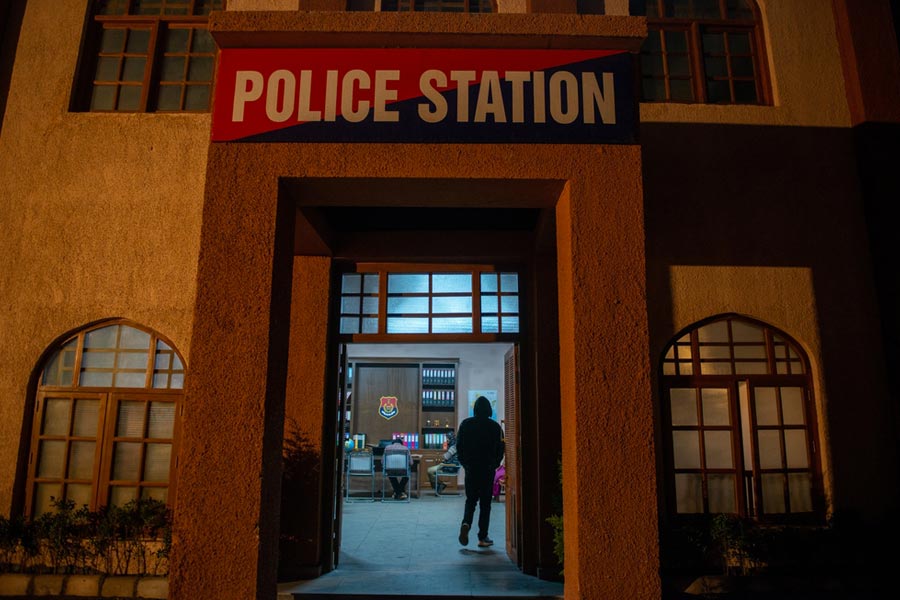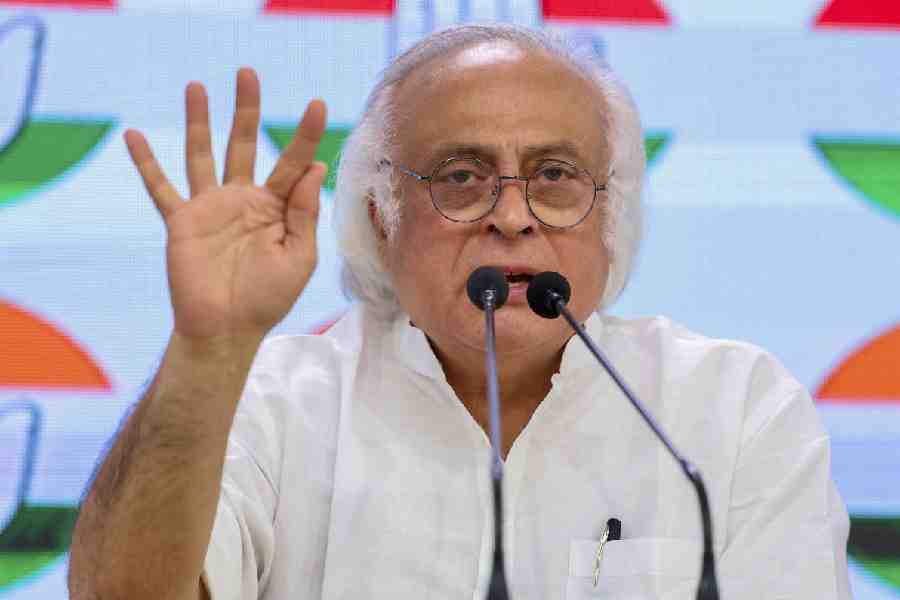 |
London, Feb. 13: British newspapers are having a lot of fun with the Pathak family, where two sisters, who claim they have been cheated out of their fortune, have fallen out in spectacular fashion with their younger and vastly richer brother.
The feud, now being fought out in the high court in London, is a simple one and worthy of a melodramatic film script.
The story, in brief, is as follows: Patak’s, the famous ethnic food firm — now worth anything between £50 million and £70 million depending on who assesses the family’s wealth — was started 40 years ago by Lakshmishanker Pathak, better known as Lakhubhai Pathak, who dispensed pickles from a humble store in London’s Warren Street and became famous in India by filing a cheating complaint against P.V. Narasimha Rao. In the complaint, Pathak accused the former Prime Minister of duping him of $100,000 with the promise of a contract for supply of newsprint and paper pulp, a charge Rao was cleared of only last December.
Two of Pathak’s daughters say they handed over their shares to their mother for business reasons but she quietly passed them on to their brother. Now, the girls, who have taken their brother to court, want their cut from a company that has escalated in value over the years.
British newspapers are loving the row because Indians are forever preaching family values to the rest of society. The row is God’s gift to British journalism.
Thus, the Daily Mail is able to talk about how “the heat in the Spice Wars between members of the family behind Patak’s was turned up from simmer to boil”. The Guardian could not help asking “why the Patak’s empire is in a pickle”.
The family surname is Pathak but the brand is spelt without an ‘h’. For more than a decade, Kirit’s glamorous wife, Meena, 47, a Mumbai woman, has been the archetypal high achieving Asian businesswoman, who has picked up numerous awards.
Her husband, Kirit, has been happy to allow his very competent wife to be also the pretty face promoting the brand name. The couple has OBEs (Order of the British Empire) from the Queen for services to industry. For the court hearing, Kirit, 51, has been accompanying his widowed mother, Shantagaury, a 77-year-old lady in white who speaks only Gujarati (this explains why the family parrot, which she looks after, can squawk only in Gujarati).
Opposing them are Kirit’s grim-faced sisters, Chitralekha Mehta, 56, and Anila Shastri, 52.
It is said that Pathak Senior arrived in Britain from Kenya in 1955 with only £5. This is probably not true but such legends add to the rags-to-riches myth. In 1974, the old man gave all his children — four sons (Bharat, Rajoo, Kirit and Yogesh) and his two daughters, Chitralekha and Anila — 1,250 shares each.
In 1989, the two daughters gave their shares to their mother because they were told to — or so they say. But this story was no Ramayana. Kirit bought out his brothers and somehow acquired the shares his sisters thought were in the mother’s safekeeping — only she had passed them on to Kirit, they allege. Much to the delight of everyone other than the family members, a great deal of dirty linen is being washed in public — or whatever the pickling equivalent is.
Kirit’s counsel has pointed out that the two sisters left it for eight years before they asked about their shares, implying they became interested only when Patak’s began to make millions. The sisters have also been accused of forging documents. The court was told that Patak’s turnover had risen from £3.8 million in 1989 to more than £28.5 million in 1997 and in excess of £54 million last year.
The quarrel appears to go a long way back in time.
In one letter to his father, Kirit apparently said: “I do love all my family and miss their company but their cancer will eat them. They cannot be satisfied, ever.”
Anila is suing her mother and brother, while Chitralekha, whose nickname is “Chick”, is taking legal action only against her brother whom she has described as “secretive”, “devious” and “dishonest”.
Chitralekha said she had asked about her shares before but her brother had always failed to respond. “I just want to hear from his mouth how deviously he treated my and my sister’s shares,” she said. “I never thought a brother was capable of such a thing. All I am after is what’s right and justifiably mine and I, as a girl, as a daughter, as a woman, I don’t think I can be treated like this... greed has never been my intention.”
Anila told the court: “I did not believe my parents would disown us in this manner.”
The Daily Mail had an easy explanation for why Kirit’s mother had given him his sisters’ shares. This was, according to the paper, “in line with Hindu custom which decrees that only sons and not daughters can inherit a family business”.
The case is continuing. Whatever the outcome, the sisters are unlikely to share a jar of pickle with their brother and their mother for the foreseeable future.










